Rhinoplasty
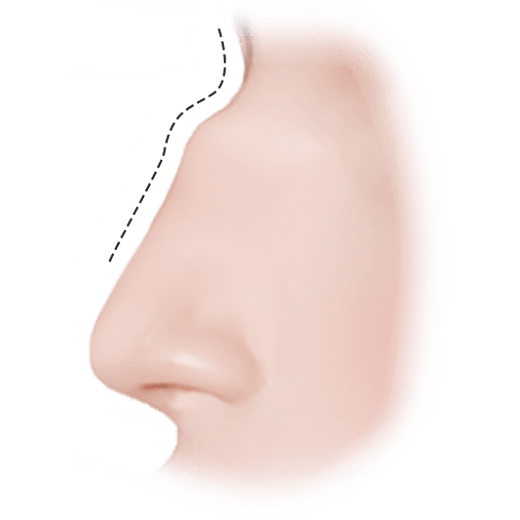
Hump Nose
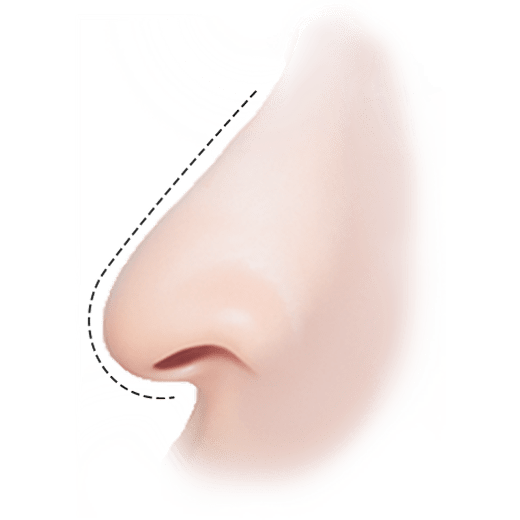
Long Nose
(Hooked Nose)
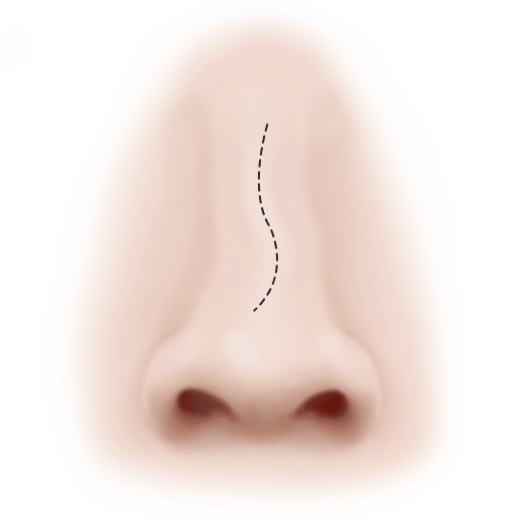
Crooked Nose
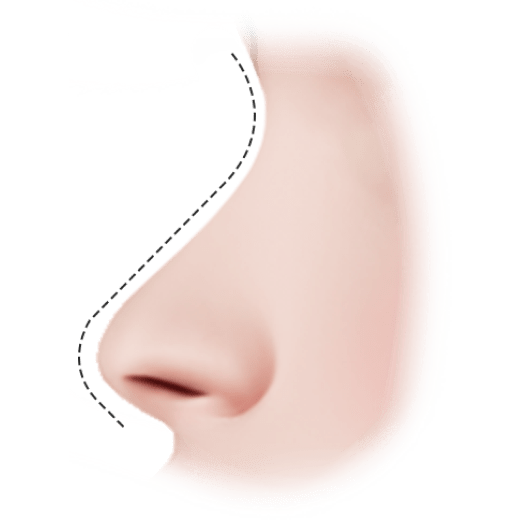
Flat Nose
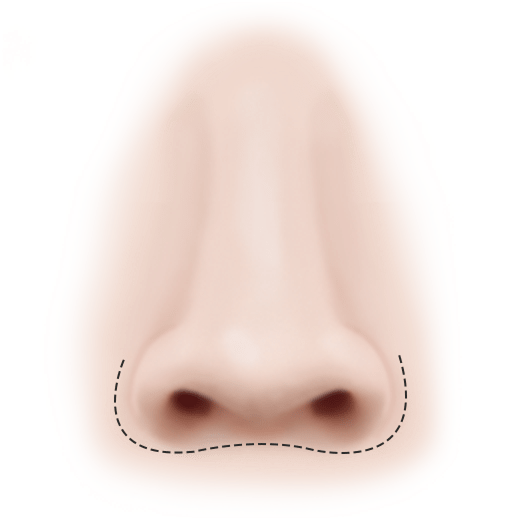
Bulbous Nose
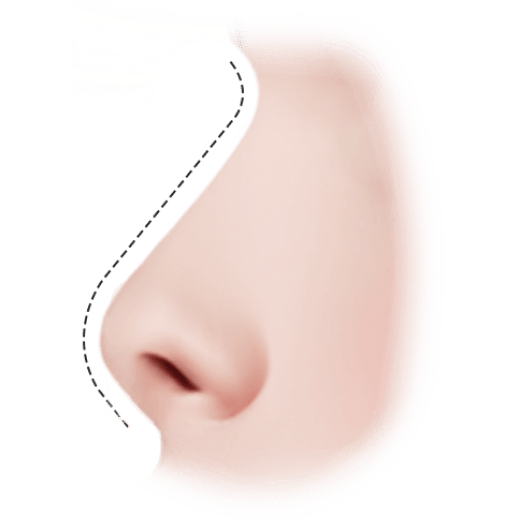
Short Nose,
Upturned Nose
Nose Types and Rhinoplasty
greatly affects one’s impression even with subtle changes,
so surgical methods should be tailored to each individual’s facial structure and nose type.
At 345 Plastic Surgery, we specialize in creating well-balanced,
three-dimensional, and aesthetically pleasing noses by studying the ideal height and shape in harmony with the face.
Rhinoplasty
Nose Types
Facial Harmony
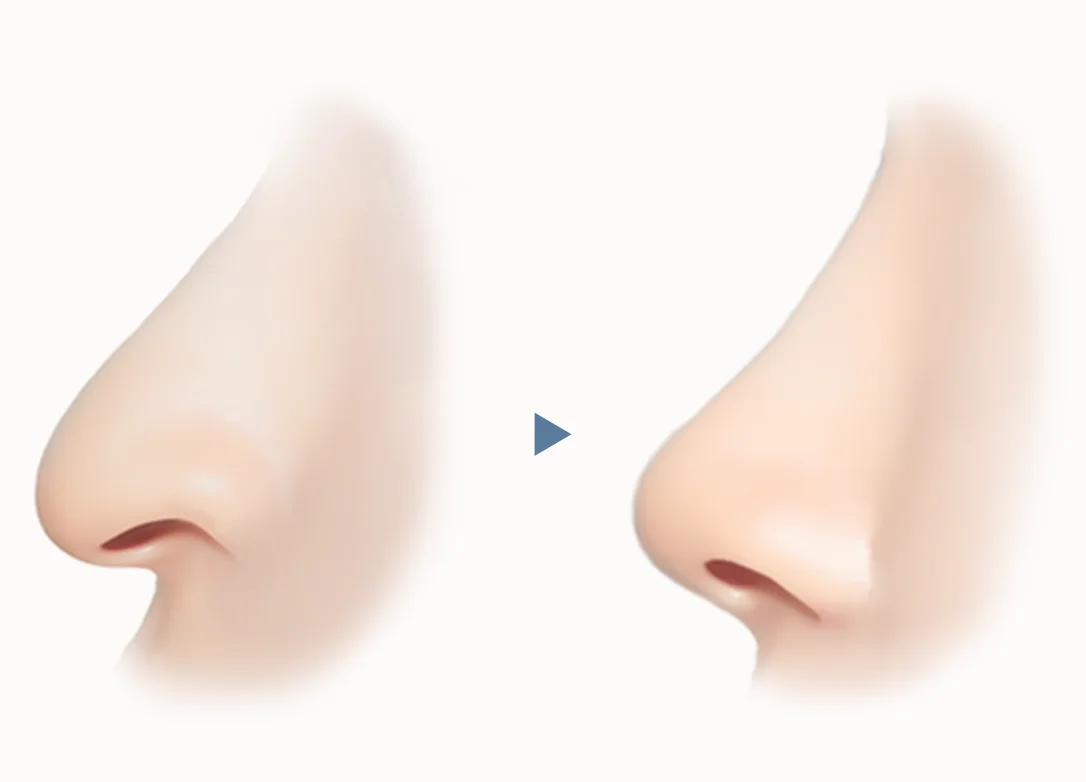
Long Nose and Hooked Nose Rhinoplasty
to create a youthful
and well-balanced nasal length
At 345 Plastic Surgery, we elevate the alar cartilages and reduce the lengthened columella to create a youthful appearance.
First, Enhanced Facial Features
Balanced facial proportions for sharper and more defined features.
Second, Youthful Face
Achieve a well-balanced, youthful, and harmonious facial impression.
Nose Type 05
Long Nose and Hooked Nose Rhinoplasty
A nose that appears long and droopy when smiling is called a long or hooked nose. A long nose can give a rustic or masculine impression, especially in women. This occurs when the septal cartilage grows excessively or the alar cartilages droop downward. The correction involves resecting muscles connecting the nasal tip to the lips and rotating the drooping alar cartilages upward for a softer appearance.
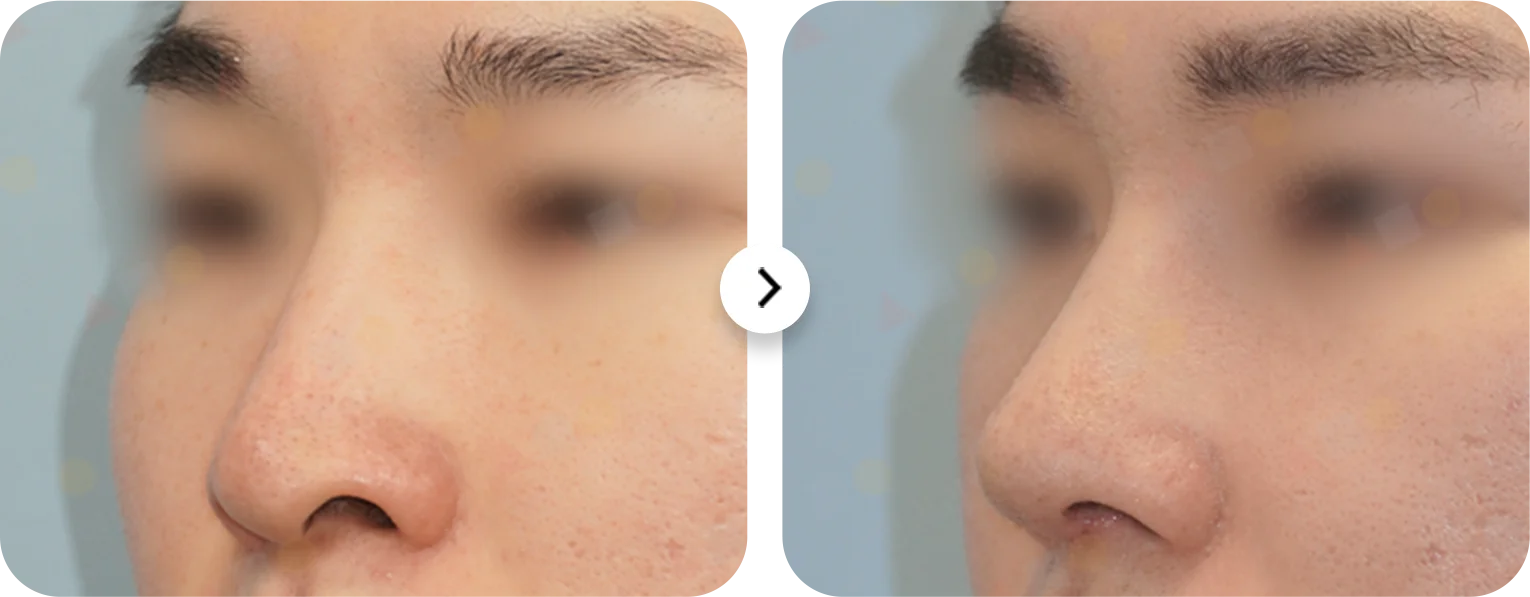
345 Youtube
Watch the Video on
Nose Types and Rhinoplasty
Dr. Song Insu, a rhinoplasty specialist, explains the surgical techniques and precautions for low nose correction.
345 YouTubeNose Plastic Surgery Process
Long Nose / Hooked Nose Rhinoplasty Process
at 345 Plastic Surgery
using cause-specific techniques to achieve a youthful face.
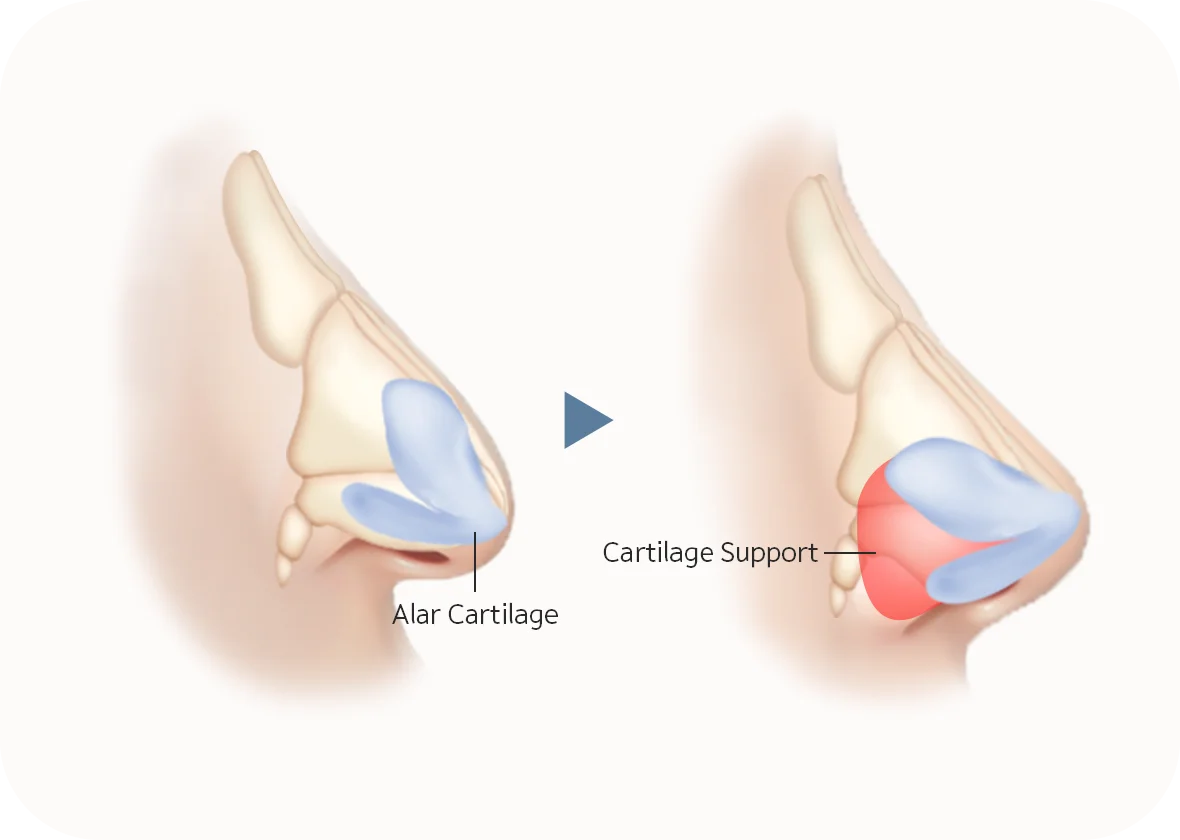
Large and Drooping Alar Cartilage
we rotate and reposition them upward
and secure them with the septal cartilage.
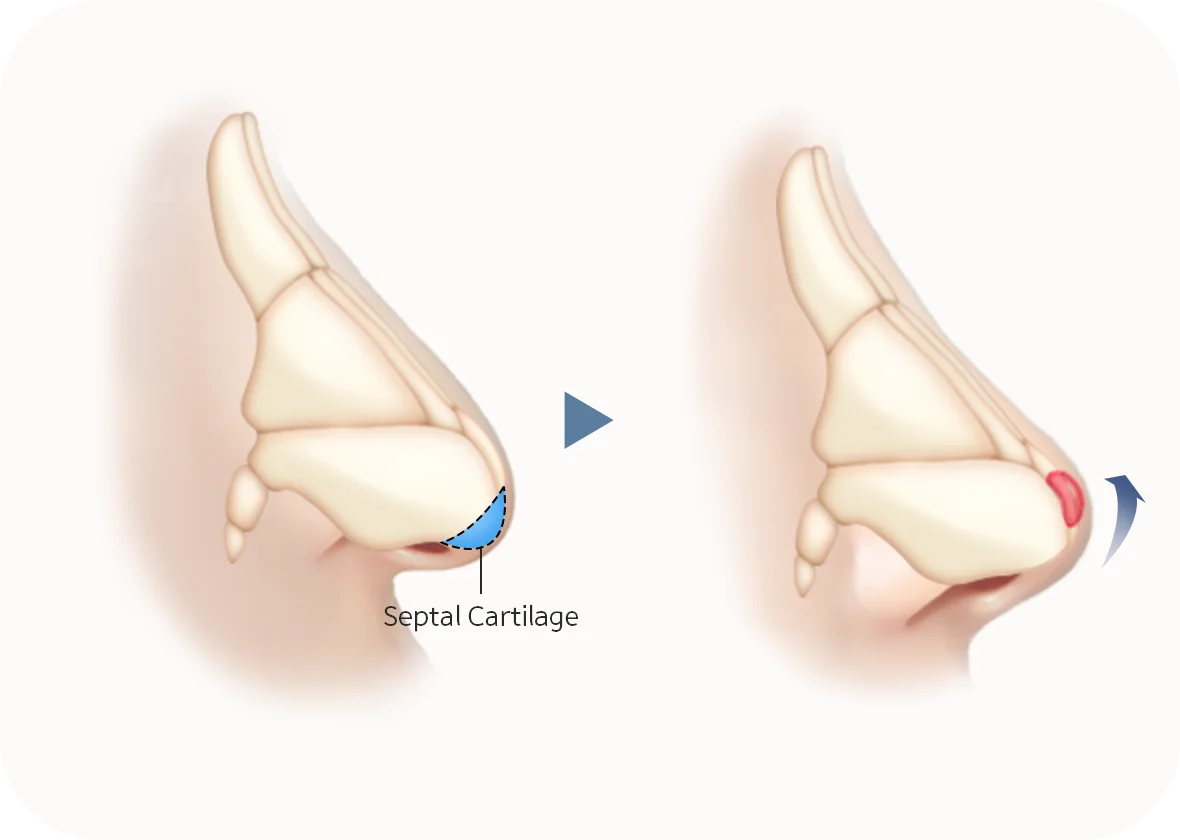
Excessive Septal Cartilage Growth
and the nasal tip cartilage
is repositioned upward.
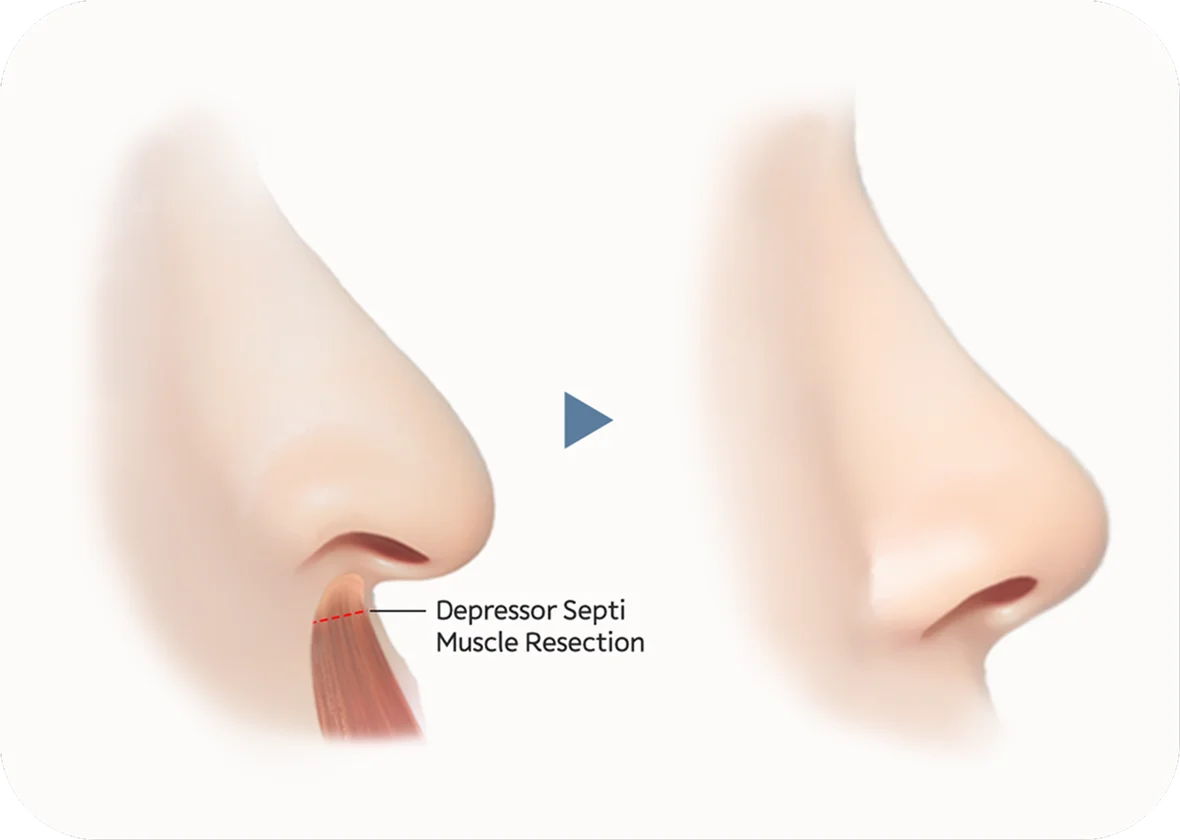
Overdeveloped Depressor Muscle Worsening Hooked Nose
the nasal tip downward are partially removed
to prevent drooping during smiling.
Before and After Photos of
Nose Types and Rhinoplasty
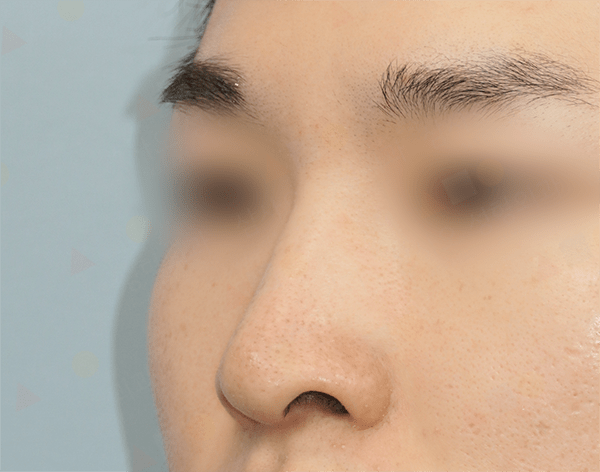
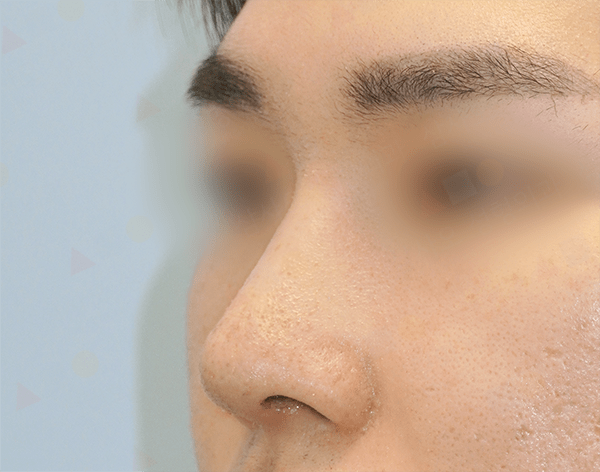


Nose Plastic Surgery info
Quick Overview of
Long and Hooked Nose Rhinoplasty
At 345 Plastic Surgery, long nose and hooked nose correction creates a youthful and balanced facial impression by adjusting nasal length.

Surgery Time
1 hour 30 minutes – 2 hours

Anesthesia
Sedation
Hospital Stay
Same-day discharge
Follow-Up Visits
3 visits
Recovery
5–7 days
Recommended target
Recommended for
these individuals
Are you concerned about surgery?
Feel free to inquire!
01
First, Long Nose Disproportionate to the Face
For those whose nose is too long compared to their facial proportions.
02
Second, Drooping Cartilage
For those with drooping alar cartilages.
03
Third, Excessive Septal Growth
For those with excessive septal cartilage growth.
04
Fourth, Overdeveloped Depressor Muscle
For those with an overdeveloped depressor muscle causing the tip to droop when smiling.
Frequently Asked Questions
About Rhinoplasty
Is implant-free revision surgery possible for contracted nose cases?
Contracture is often caused by inflammation from implants like silicone or Gore-Tex. In revision surgery, it is recommended to avoid reusing implants. If contracture is implant-related, the standard is to remove the implant and perform the surgery without it.
Is implant-free rhinoplasty possible for everyone?
Whether or not to use an implant is a matter of choice. However, there may be limitations to how much the nasal bridge can be raised without an implant, which will be explained during consultation. If the nasal bridge is of average height, enhancing the nasal tip can make the nose stand out, making implant-free rhinoplasty a viable option.
Why does nasal tip drooping occur after rhinoplasty?
Since the implant is supported by the underlying bone, collapse of the nasal bridge is rare. However, if the nasal tip is lower than the bridge, it may appear as tip drooping. If the patient is prone to tip drooping, adjusting the bridge height or using supportive materials can minimize the risk. However, due to the constant pull of gravity, tip drooping may occur over 10 to 20 years as ligaments and surrounding tissues loosen with aging. Even without surgery, the nose naturally droops over time due to aging.